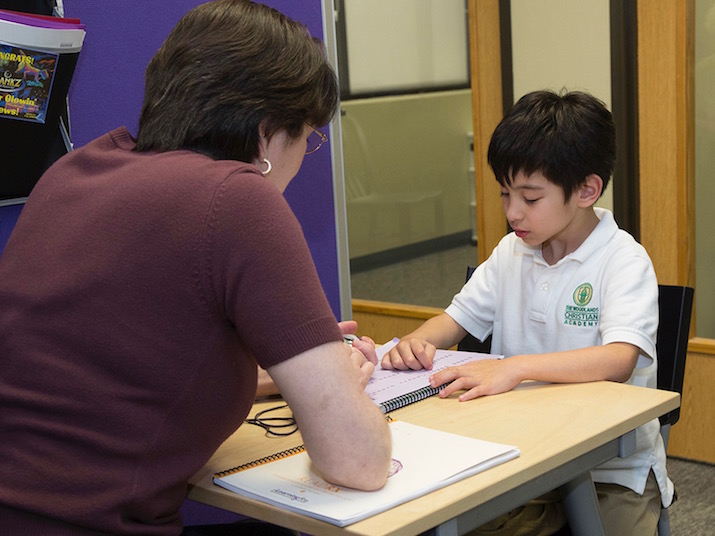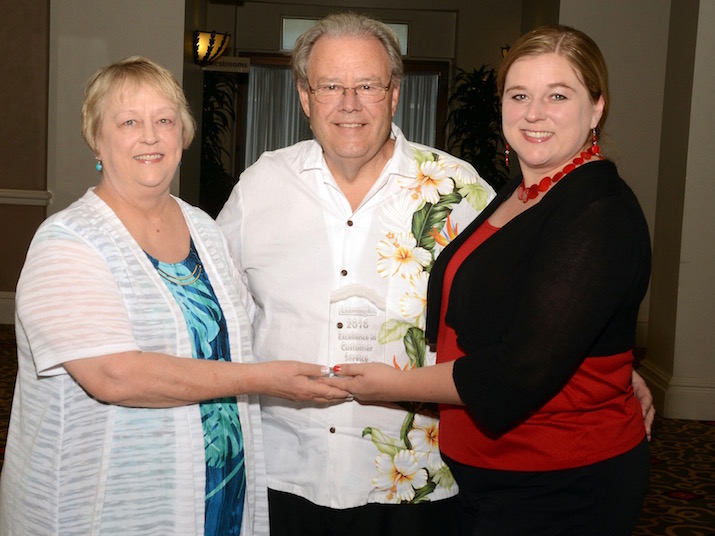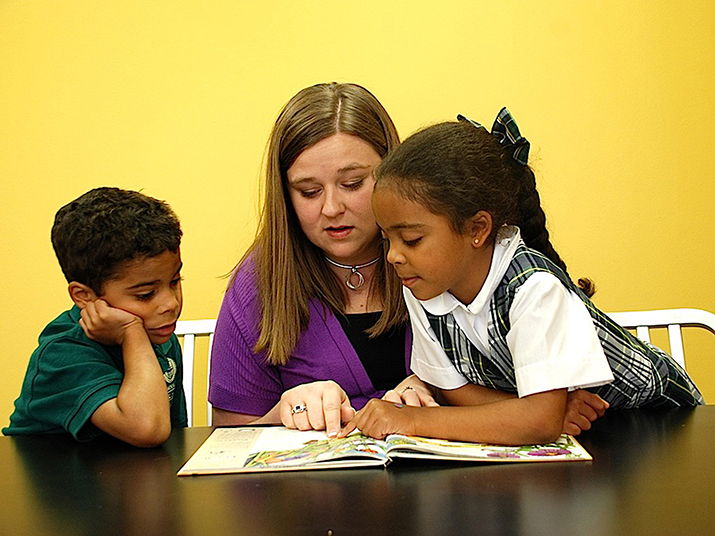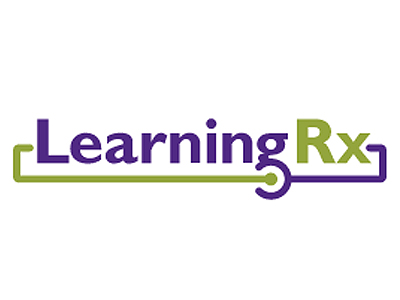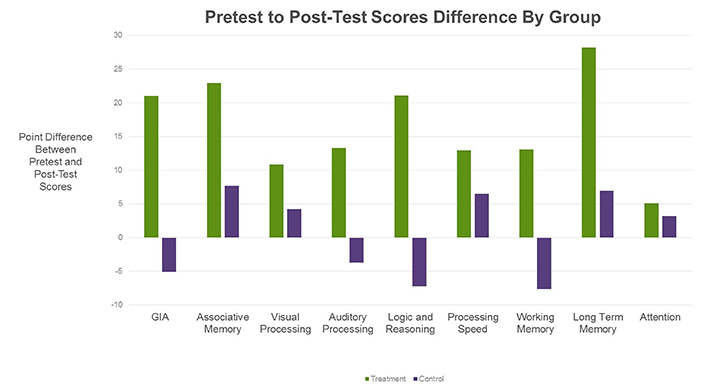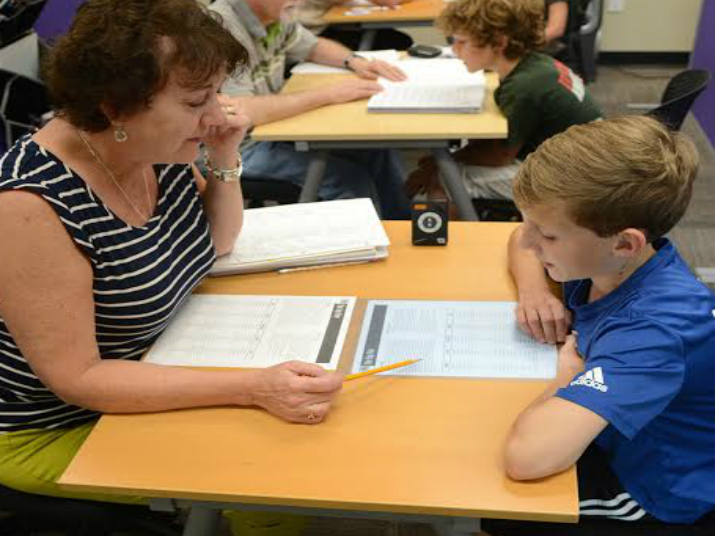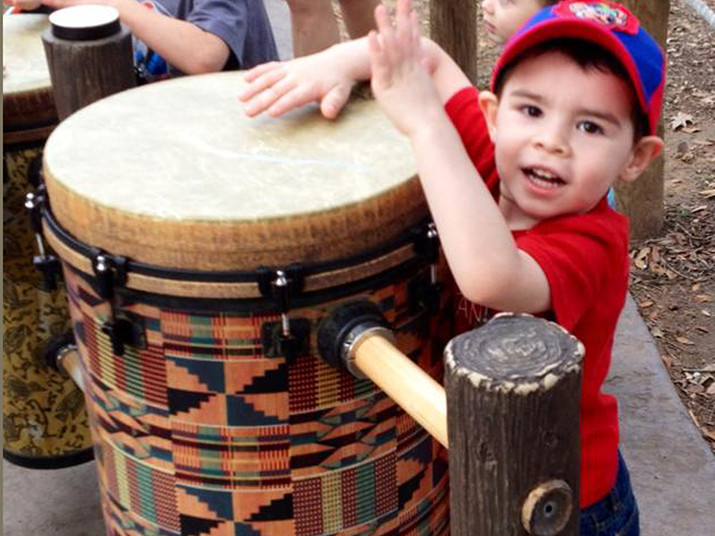- Sections :
- Crime & Public Safety
- Restaurants & Food
- Sports
- More
Categories
LearningRx credits love for building brain power

THE WOODLANDS, Texas -- Love can inspire a poem, a painting or a day-dream, but only recently has it been credited with building brain power.
Kim Bellini, director of LearningRx in The Woodlands, said she is intrigued with the many mysteries surrounding the brain -- and, most recently, the role that love plays.
Bellini’s business focuses on strengthening cognitive skills – those functions that help us acquire, retain and process information. Trainers at LearningRx work one-on-one with clients of all ages – not tutoring them but using certain techniques and even games to boost cognitive function.
A new field, interpersonal neurobiology, uses clinical evidence to observe how the brain continually changes, Bellini said.
“This is good news,” she explained. “It means that people can continually learn, and the brain is able to rewire and improve itself throughout life – if it gets the right stimulation.”
Bellini said “neuroplasticity,” the science that shows how experience can change the brain’s physical structure and function, has another major implication. “This tells us that what people choose to do, or who we choose to be around, has the power to stimulate the brain and ultimately define a person,” Bellini said.
In other words, relationships can affect the brain. “Starting with your mother, and carrying on to your spouse, others can change how our brain functions,” she said.
Love at first sight
Immediately at birth, the brain is buzzing with information from a new world – and neural circuits are actually being built to form a bond with caregivers, Bellini said.
Babies show love early on. At 2 to 4 months, a child makes eye contact and starts to smile.
“These signs of love are more important than just being cute,” Bellini noted. “Smiling back and forth, giggling together and mimicking body movements actually help your baby develop a host of critical qualities, including intelligence and language ability.”
Advances in neuro-imaging are showing that a baby is learning and forming the basis of learning ability at these early stages.
As children grow, they need a loving and nurturing home environment to increase their ability to learn in school, Bellini added. “So love and caring at home is critical to a developing child and ultimately helps them reach their potential in the classroom,” she said.
Continuing to grow
Scientists have been studying the effects of relationships on the brain. For example, Daniel J. Siegel and Allan N. Schore, colleagues at the University of California, Los Angeles, recently discussed findings of their research proving that caregivers can change the way genes express themselves. Supportive relationships can predict positive traits.
James Coan, a neuroscientist at the University of Virginia, conducted experiments that showed subjects in a healthy relationship could lower their blood pressure and ease stress by holding hands.
Bellini said the research does not surprise her; it makes sense considering some of the basics used in brain training.
“Basically, the brain is stimulated by exposure to new stimuli,” Bellini said. “We tell clients to learn a new language or play an instrument and to constantly challenge themselves mentally.”
Relationships often encourage this type of behavior, she added. “When people fall in love, and spend more time with others, they often try new things, listen to new ideas, adopt new habits and meet new people – all of this is stimulating for the brain,” Bellini said.
Creating fun ways to learn and build cognitive skills is one of the chief goals of The Woodlands LearningRx, a brain-training center that offers unique programs to transform a student’s ability to learn at a core level.
Kim Bellini, director of LearningRx in The Woodlands, said she is intrigued with the many mysteries surrounding the brain -- and, most recently, the role that love plays.
Bellini’s business focuses on strengthening cognitive skills – those functions that help us acquire, retain and process information. Trainers at LearningRx work one-on-one with clients of all ages – not tutoring them but using certain techniques and even games to boost cognitive function.
A new field, interpersonal neurobiology, uses clinical evidence to observe how the brain continually changes, Bellini said.
“This is good news,” she explained. “It means that people can continually learn, and the brain is able to rewire and improve itself throughout life – if it gets the right stimulation.”
Bellini said “neuroplasticity,” the science that shows how experience can change the brain’s physical structure and function, has another major implication. “This tells us that what people choose to do, or who we choose to be around, has the power to stimulate the brain and ultimately define a person,” Bellini said.
In other words, relationships can affect the brain. “Starting with your mother, and carrying on to your spouse, others can change how our brain functions,” she said.
Love at first sight
Immediately at birth, the brain is buzzing with information from a new world – and neural circuits are actually being built to form a bond with caregivers, Bellini said.
Babies show love early on. At 2 to 4 months, a child makes eye contact and starts to smile.
“These signs of love are more important than just being cute,” Bellini noted. “Smiling back and forth, giggling together and mimicking body movements actually help your baby develop a host of critical qualities, including intelligence and language ability.”
Advances in neuro-imaging are showing that a baby is learning and forming the basis of learning ability at these early stages.
As children grow, they need a loving and nurturing home environment to increase their ability to learn in school, Bellini added. “So love and caring at home is critical to a developing child and ultimately helps them reach their potential in the classroom,” she said.
Continuing to grow
Scientists have been studying the effects of relationships on the brain. For example, Daniel J. Siegel and Allan N. Schore, colleagues at the University of California, Los Angeles, recently discussed findings of their research proving that caregivers can change the way genes express themselves. Supportive relationships can predict positive traits.
James Coan, a neuroscientist at the University of Virginia, conducted experiments that showed subjects in a healthy relationship could lower their blood pressure and ease stress by holding hands.
Bellini said the research does not surprise her; it makes sense considering some of the basics used in brain training.
“Basically, the brain is stimulated by exposure to new stimuli,” Bellini said. “We tell clients to learn a new language or play an instrument and to constantly challenge themselves mentally.”
Relationships often encourage this type of behavior, she added. “When people fall in love, and spend more time with others, they often try new things, listen to new ideas, adopt new habits and meet new people – all of this is stimulating for the brain,” Bellini said.
Creating fun ways to learn and build cognitive skills is one of the chief goals of The Woodlands LearningRx, a brain-training center that offers unique programs to transform a student’s ability to learn at a core level.
Comments •


